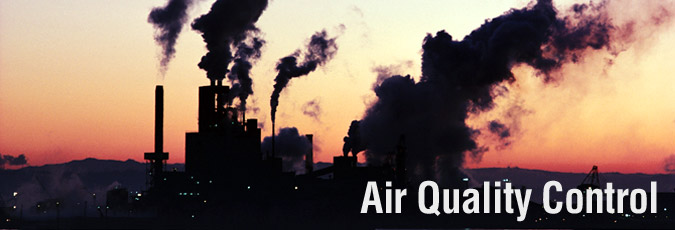
Our attorneys have assisted clients in addressing permitting matters, threatened enforcement actions, new source performance standards issues, and state implementation plan revisions for, among others, firms in the following industries: pulp and paper, explosives manufacturing, utility transformer assembly, paint manufacturing, rendering, printed circuit board manufacturing, iron and steel, ceramic tile manufacturing, printing and graphic arts, petroleum refining, specialty chemical formulation, aerospace, dairy farming, metal fabrication, fertilizer production, and wood, plastic, and pumpable sealant product manufacturing.
In addition, we frequently have advised clients on Prevention of Significant Deterioration/nonattainment issues for new or modified major sources. Much of this work has been performed before the Texas Commission on Environmental Quality (“TCEQ”).
The firm’s work in the hazardous air pollutant (“HAP”) area, including health effects analysis and maximum achievable control technology (“MACT”) spans several different industries. We have also assisted clients with issues involving indoor air pollutants, including asbestos, mold, and laboratory chemicals.
As suggested above, we have represented clients in a number of formal and informal enforcement proceedings with regulatory agencies in the air quality control area. In general, our enforcement experience in the air quality area has centered on negotiation of administrative orders and consent decrees with state agencies. It is our belief that, in numerous cases, we helped our clients achieve compliance and avoid potentially devastating penalties.
Additionally, our attorneys have been involved in national regulatory matters relative to air quality. For example, Mr. Guida had substantial involvement in the regulatory negotiation process associated with EPA’s rulemaking on reformulated gasoline and oxygenated fuels pursuant to Title III of the Clean Air Act Amendments of 1990. We also have worked with petroleum refining industry clients in complying with Clean Air Act requirements for the content of conventional gasoline. We have also counseled clients on the Clean Air Act Title V Operating Permit program and corresponding state programs. Additionally, we have counseled clients regarding compliance with regulatory provisions governing stratospheric ozone protection.
We invite you to contact one of our attorneys to discuss how we might assist you in addressing any environmental challenges or opportunities that impact your company’s interests.
- Home
- About Us
- Areas of Practice
- Attorneys
- Publications
- News & Events
- Speaking Engagements
- Resources
- Contact
Copyright © 2002 Guida, Slavich & Flores, P.C. | Principal office in Dallas, TX